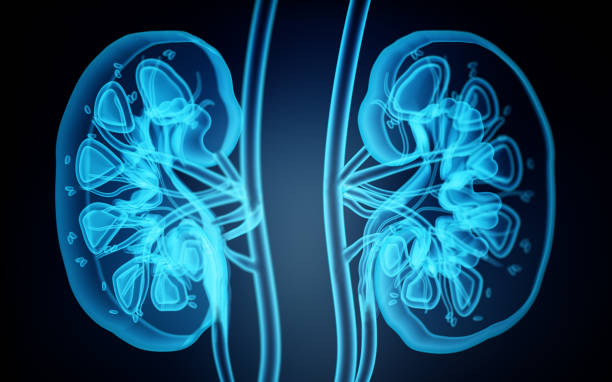Five signs your kidneys may be failing: Recognizing these signs early can prevent serious damage

The kidneys are essential organs for the proper functioning of the body. They are responsible for filtering waste, regulating fluid and electrolyte balance, and maintaining stable blood pressure.
If they aren't working properly, serious health problems can arise. Recognizing the early symptoms can be key to avoiding major complications.
1. Changes in urination One of the first symptoms that indicates kidney disease is a change in urination. The presence of persistent foamy or bubbly urine may indicate protein in the urine (proteinuria), an early sign of kidney damage.
According to a study published in Kidney International , 40% of patients with this symptom developed chronic kidney disease within 5 years.

The color of your urine can alert you to your kidney health. Photo: iStock
Additionally, it's important to be alert for excessive nighttime urination (nocturia) or if the color of your urine changes to dark, tea-like tones or becomes very clear, like water, which may indicate that your kidneys aren't filtering properly. The American Society of Nephrology recommends a urine test if these symptoms persist for more than three days.
2. Persistent swelling in feet, ankles and face: renal edema When the kidneys don't function properly, excess fluid and sodium aren't eliminated from the body, causing swelling, particularly in the feet, ankles, and face.
Renal edema usually begins in the eyelids, especially in the morning, and can spread to other parts of the body. Unlike swelling caused by heart problems, this type of edema does not improve when elevating the legs.
This symptom usually appears when 30% to 40% of kidney function has been lost. Researchers at the Cleveland Clinic have noted that the swelling is linked to elevated levels of creatinine in the blood, a substance that healthy kidneys filter efficiently.

Causes swelling. Photo: iStock
Kidney anemia is a common problem when the kidneys are damaged, as they produce less erythropoietin, the hormone that stimulates red blood cell production. According to a report published in the Journal of the American Society of Nephrology , 70% of patients with stage 3 kidney disease experience severe fatigue.
This fatigue doesn't improve with rest and is often accompanied by what's called "brain fog," which is due to a lack of oxygen in the brain caused by anemia. This increases the risk of premature cognitive decline by 300%, nephrologists warn.
4. Metallic taste in the mouth and bad breath (uremia) Uremia is a condition that occurs when the kidneys fail to adequately filter urea, a substance that accumulates in the blood. This buildup of toxins produces a metallic taste in the mouth and bad breath with an ammonia odor. Uremia is most common when the kidneys are functioning below 15% of their capacity.
The Spanish Association of Nephrology warns that many people mistake these symptoms for dental problems, which delays the diagnosis of kidney failure. Furthermore, uremia can cause morning sickness and an aversion to protein-rich foods, such as meat, due to the body's inability to process them properly.

This is what you should know about your kidney health. Photo: iStock
The pain associated with kidney problems is different from common muscle pain. It is felt in the lower back, between the ribs and hip, and usually occurs on one side only. The International Society of Nephrology distinguishes this pain from other muscle pain, as it is constant and unrelated to movement.
Kidney colic, caused by kidney stones, is a severe, rolling pain. On the other hand, a dull, persistent pain can be a sign of conditions such as polycystic kidney disease or chronic inflammation. If this pain is accompanied by fever or blood in the urine, it is essential to see a doctor immediately.
It's essential to be alert and consult a healthcare professional if these symptoms persist. Early detection and appropriate treatment can help prevent more serious consequences.
El Universal (Mexico) / GDA.
More news in EL TIEMPO *This content was rewritten with the assistance of artificial intelligence, based on information from El Universal (GDA), and reviewed by a journalist and an editor.
eltiempo





